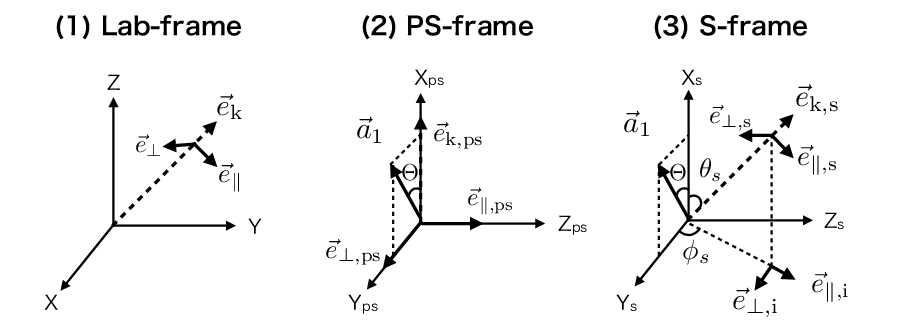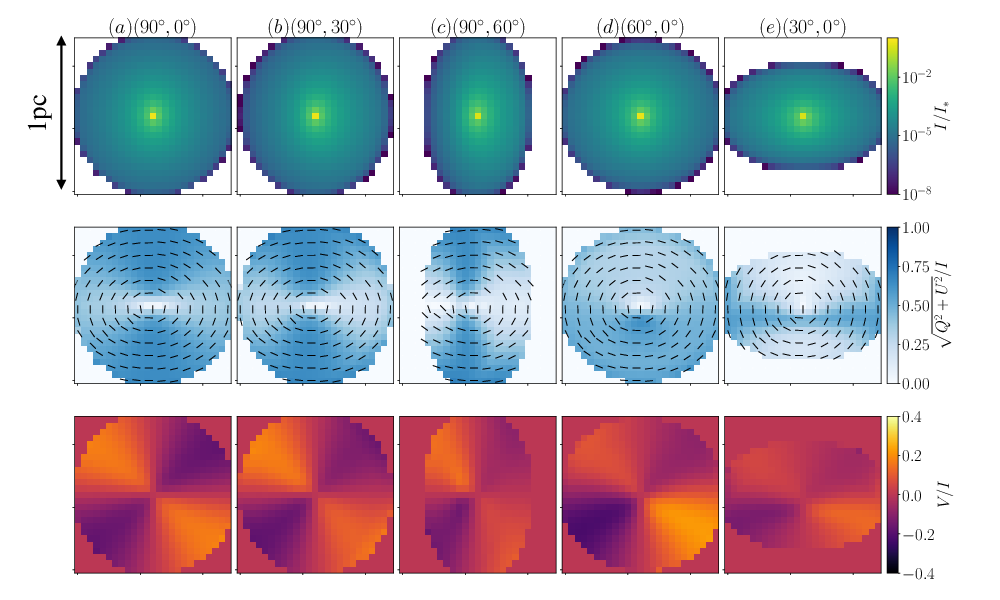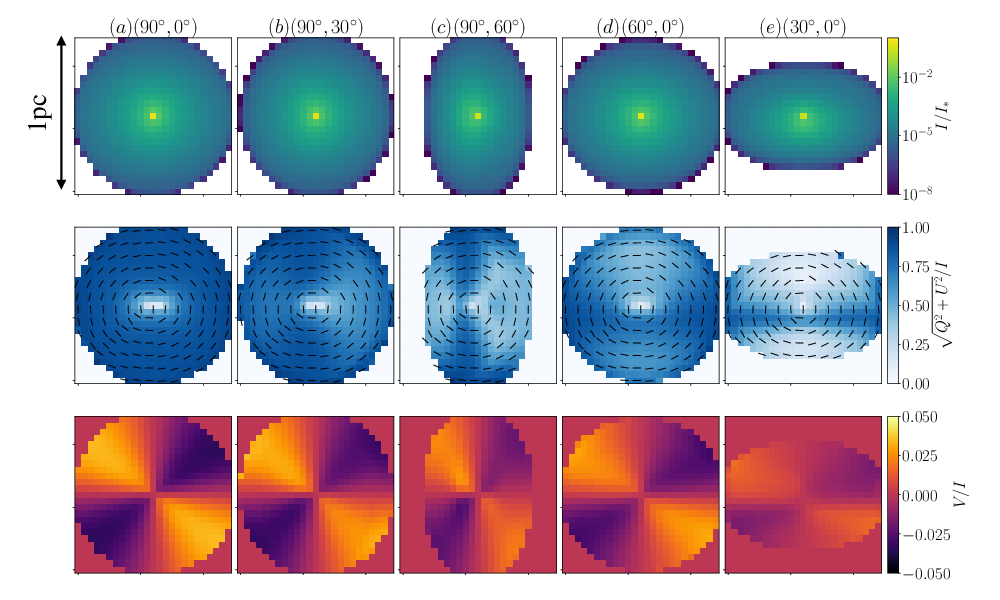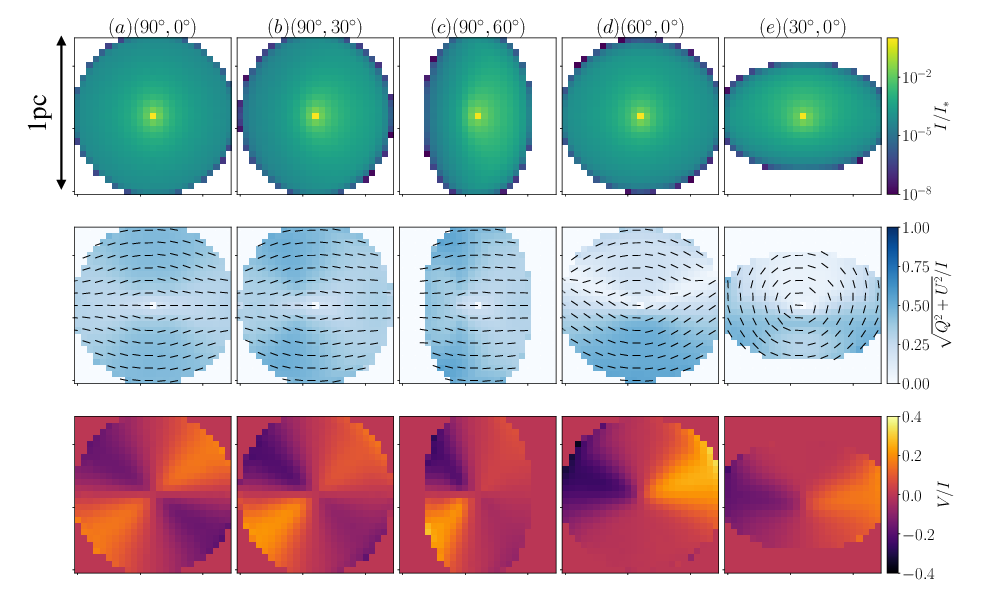Achievements & Publications
Generation of high circular polarization of interstellar Lyman α radiation triggering biological homochirality
Fukushima, Hajime, Yajima, Hidenobu, & Umemura, Masayuki
Abstract
The homochirality of biological molecules on Earth is a long-standing mystery regarding the origin of life. Circularly polarized ultraviolet (UV) light could induce the enantiomeric excess of biological molecules in the interstellar medium, leading to the homochirality on Earth. By performing 3D radiation transfer simulations with multiple scattering processes in interstellar dusty slabs, we study the generation of the circular polarization (CP) of UV light at Lyα (λ = 0.1216 μm) as well as at near-infrared (NIR, λ = 2.14 μm) wavelengths. Our simulations show that the distributions of CP exhibit a symmetric quadrupole pattern, regardless of wavelength and viewing angle. The CP degree of scattered light from a dusty slab composed of aligned grains is ~15 per cent for Lyα and ~3 per cent at NIR wavelengths in the case of oblate grains with an Mathis-Rumpl-Nordsieck size distribution. We find that the CP degree of Lyα is well correlated with that in the NIR regardless of viewing angle, whilst being a factor of ~5 higher. Thus, a high CP of Lyα is expected at sites where NIR CP is detected. We suggest that such circularly polarized Lyα may initiate the enantiomeric excess of biological molecules in space.






 和 英
和 英